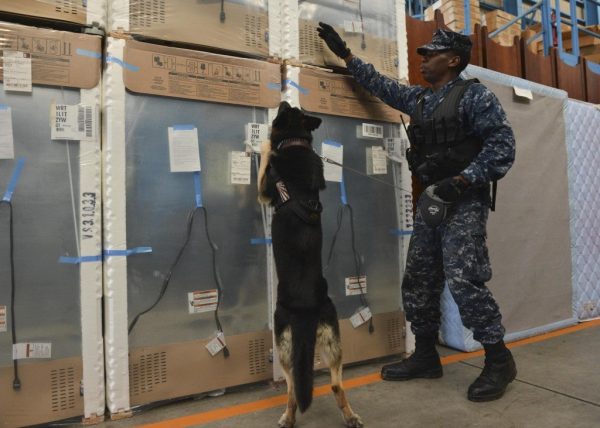
The Lakeland Shuffle. It’s not a version of the Shuffled Dance seen in the short video clip below:
The Lackland Shuffle is a K9 military term – a slang, actually – and for it to make sense, you’d have to know that early on, the Department of Defense acquired puppies for its military working dog program largely from European breeders because (it was said) the DoD didn’t have access to an American breeding program that could satisfy the demand. The DoD’s perception could be debated, but we’ll do that another time. For now, we’ll just say that increased calls to end the outsourcing of puppies “nudged” the DOD to start its own breeding program. Well, that, and the fact that the cost to procure military working breed puppies from Europe started to skyrocket. In 2019, the Air Force budgeted $5.3 million to buy about 450 dogs a year, and the 341st training squadron at Lackland Air Force Base had an operating budget of about $8 million. It didn’t take a genius to do the math.
The breeding program was set up at Lackland Air Force base in San Antonio, Texas, and if you want to read more about the history of the program, click here because we’re going to jump way ahead to touch upon key terms that every military dog handler understands, and one of them is the “Inverted V.”
All handlers training their canine charges to conduct a proper detection search are taught the “inverted V” method. In this exercise, the dog learn to detect low, then high, and then low again. To do this, handlers have to learn to walk backwards, and because beginners move their feet so slowly, the Inverted V has become known as the “Lackland shuffle” in reference to the basic handler’s course at Lackland Air Force Base.
By the way, did you know that traditionally, every military working dog is a Non Commissioned Officer, and always one rank higher than its handler? While some sources say that the custom was to prevent handlers from mistreating their dog, an operations superintendent at the Military Working Dog School was once quoted as saying that the tradition grew out of respect. Younger handlers who made the mistake of thinking they were in charge needed to be reminded that the dog with whom they were working may easily have trained 100 students before him or her. The tradition grew out of experienced handlers recognizing the K9 as their partner. Wise thinking!
Photo at the top is from the US Navy
